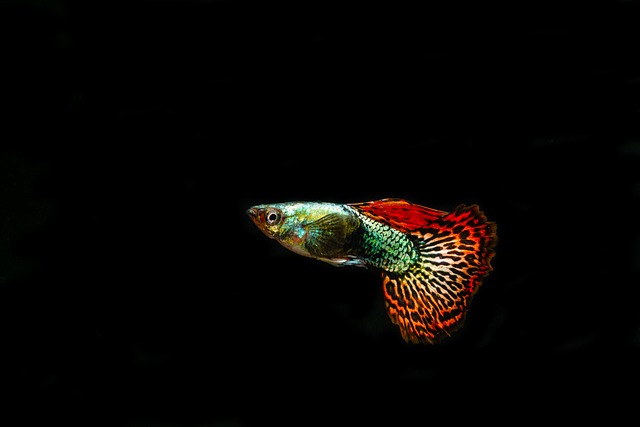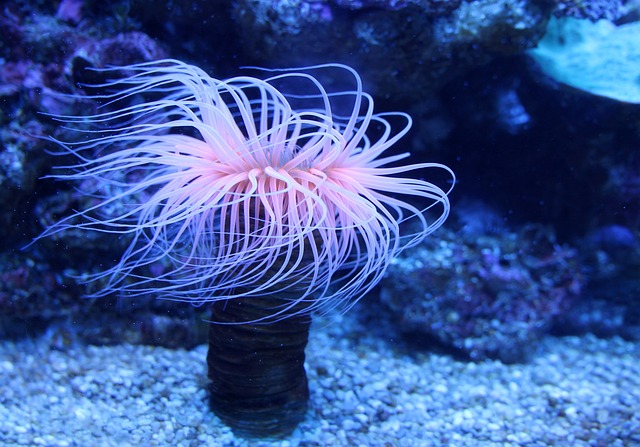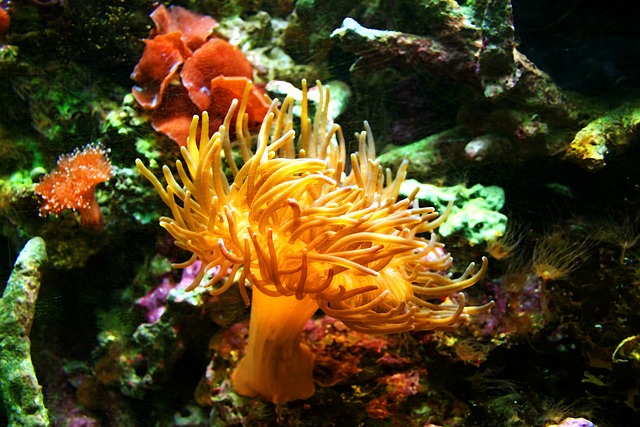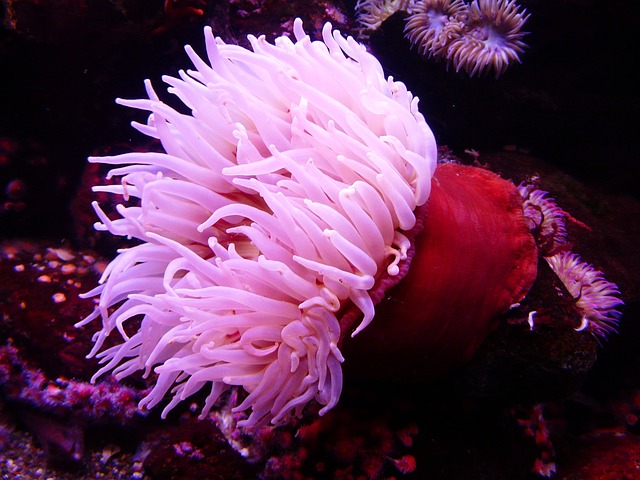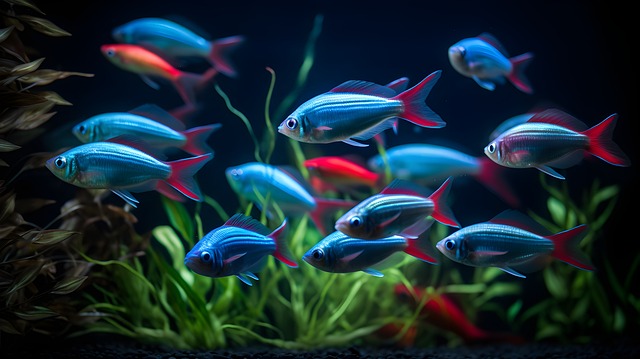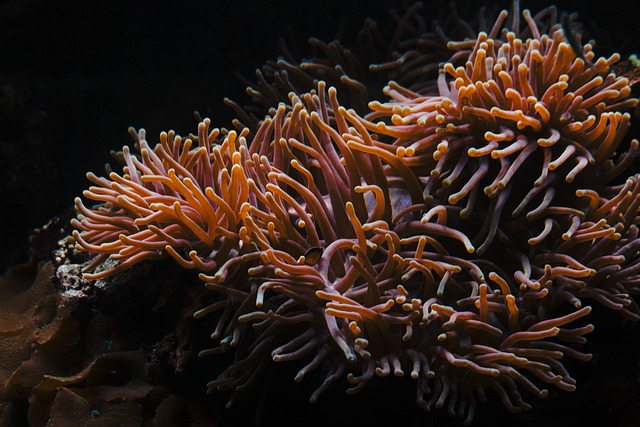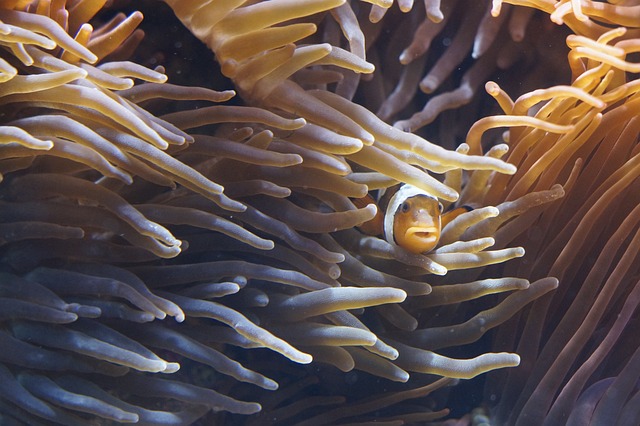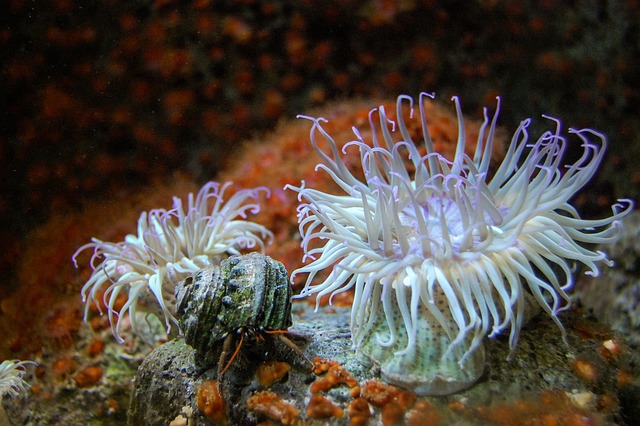Silver dollar fish and guppies are both popular freshwater aquarium fish. While they can coexist peacefully in the same tank, many fish enthusiasts wonder if silver-dollar fish eat guppies.
The answer is not a simple yes or no, as it depends on various factors.
Silver-dollar fish are known to be omnivorous, meaning they eat both plants and animals. They feed on insects, crustaceans, and small fish in their natural habitat.
However, in a well-fed aquarium environment, they may not need to hunt for food and may ignore smaller fish like guppies.
On the other hand, if they are hungry or if the guppies are particularly small, they may see them as prey and try to eat them.
It is important to note that the size of the tank and the number of fish in it can also affect the likelihood of silver dollar fish eating guppies.
They are less likely to go after guppies in a large tank with plenty of hiding places and enough food for all the fish. However, competition for food and space can lead to aggression and predation in a small tank with too many fish.
Dietary Habits of Silver Dollar Fish
Natural Diet
Silver dollar fish are omnivorous and feed on various foods in the wild. Their natural diet includes small crustaceans, insects, and plant matter. They consume algae, aquatic plants, fallen fruits, and seeds that have washed into the water.
Captive Diet
In captivity, silver dollar fish can be fed a varied diet, including flakes, pellets, and frozen and live foods. They will readily eat brine shrimp, bloodworms, and other small invertebrates.
It is important to note that silver dollar fish tend to overeat, which can lead to health problems. Therefore, feeding them small amounts of food several times a day instead of one large meal is recommended.
Although silver dollar fish are known to be peaceful, there have been reports of them eating smaller fish, such as guppies. It is essential to monitor their feeding habits and tank mates to ensure that they are not causing harm to other fish in the aquarium.
In summary, silver dollar fish are omnivorous and have a diverse diet in the wild. In captivity, they can be fed a varied diet that includes flakes, pellets, frozen, and live foods.
They tend to overeat, so feeding them small amounts of food several times a day is essential.
Do Silver Dollar Fish Eat Guppies?
Silver dollar fish are known to be peaceful and friendly but are also omnivorous and opportunistic feeders. This raises the question of whether they will eat guppies, smaller fish commonly kept in aquariums.
The short answer is yes, silver-dollar fish will eat guppies. While they may not actively hunt and pursue guppies, they will not hesitate to eat them if given the opportunity.
This is especially true if the guppies are small enough to fit in the silver dollar’s mouth.
It is important to note that silver dollar fish are not aggressive predators and are unlikely to harm other fish in the aquarium. However, their omnivorous diet and large size make them capable of consuming smaller fish like guppies.
Suppose you want to keep silver dollar fish and guppies in the same aquarium.
In that case, it is recommended to provide plenty of hiding places and vegetation for the guppies to avoid being eaten.
Additionally, feeding the silver dollar fish a varied diet that includes live or frozen foods can help reduce their desire to eat other fish in the tank.
While silver dollar fish may eat guppies, they are not aggressive predators and can coexist peacefully with other fish in a well-maintained aquarium.
Impact on Aquarium Ecosystem
When considering introducing silver dollar fish and guppies into the same aquarium, it is essential to understand the potential impact on the overall ecosystem of the tank.
Silver-dollar fish are known to be omnivorous, meaning they consume both plant and animal matter. Conversely, guppies are primarily herbivorous but will also consume small insects and other small animals.
If silver dollar fish are introduced into an aquarium with guppies, there is a possibility that they may consume the guppies.
This can significantly impact the overall population of guppies in the tank. Additionally, if the guppies are a primary food source for the silver dollar fish, it may lead to overfeeding and the accumulation of excess waste in the tank.
Another potential impact on the aquarium ecosystem is the resource competition between the two species. Silver-dollar fish and guppies require similar water conditions and may compete for space and food.
This can lead to stress and aggression among the fish, ultimately impacting their health and well-being.
It is essential to consider the compatibility of different fish species before introducing them into the same aquarium. Proper research and planning can help ensure a healthy and thriving ecosystem for all fish involved.
Alternatives to Guppies for Silver Dollar Fish
Silver dollar fish are known to be omnivores and will eat various foods, including live, frozen, and dried options. While guppies are a common food source for silver dollar fish, several other alternatives can be fed.
Pellets
Pellets are a convenient and nutritious option for feeding silver-dollar fish. They come in various sizes and can be easily purchased at pet stores or online. Pellets are also less messy than live or frozen foods, which can help keep the aquarium cleaner.
Bloodworms
Bloodworms are a popular food option for many fish species, including silver dollar fish. They are high in protein and can be purchased in frozen or live form. Bloodworms can be fed as a treat or a regular part of the fish’s diet.
Brine Shrimp
Brine shrimp are another option for feeding silver-dollar fish. They are small and easy to digest, making them an ideal food source for fish. Brine shrimp can be purchased in frozen or live form and fed as a treat or a regular part of the fish’s diet.
Vegetables
Silver-dollar fish also enjoy eating vegetables like lettuce, spinach, and zucchini. Vegetables should be blanched before feeding to make them more accessible for the fish to digest. Vegetables can be fed as a supplement to the fish’s diet or a treat.
In conclusion, several alternatives to guppies can be fed to silver dollar fish. Pellets, bloodworms, brine shrimp, and vegetables are all nutritious options that can provide a balanced diet for the fish.
Understanding Silver Dollar Fish
Silver Dollar Fish, also known as Metynnis argenteus, is a popular freshwater fish often kept in aquariums. They are known for their distinctive silver color and round shape, which resembles a silver dollar.
These fish are native to the Amazon basin in South America and are often found in slow-moving rivers and streams. They feed on various foods in the wild, including insects, crustaceans, and plant matter.
Silver dollar fish are generally peaceful in an aquarium and can be kept with other non-aggressive fish species. They are known to be social and enjoy being in groups of three or more.
Silver dollar fish are omnivores, meaning they eat plant and animal matter. In captivity, they can be fed various foods, including flakes, pellets, and live or frozen foods such as brine shrimp or bloodworms.
It is important to note that while silver dollar fish are generally peaceful, they can become aggressive towards smaller fish species such as guppies. Keeping them with larger fish species is recommended to prevent any potential aggression.
Guppy Fish: A Brief Overview
Guppies are small, brightly colored freshwater fish popular in aquariums due to their hardiness, ease of care, and attractive appearance. They are native to South America and can be found in various habitats, including streams, rivers, and pools.
Guppies are known for their distinctive appearance, with males typically exhibiting more vibrant colors and longer fins than females. They are also livebearers, meaning they give birth to live young rather than laying eggs.
Guppies are omnivores and will eat various foods, including algae, small invertebrates, and commercial fish food. They have small mouths and prefer small, bite-sized pieces of food.
While guppies are generally peaceful and can be kept with other small, non-aggressive fish, it is essential to note that some larger fish, such as silver dollar fish, may see guppies as prey and attempt to eat them. Therefore, carefully considering tankmates when keeping guppies in a community aquarium is essential.
Conclusion
In conclusion, silver dollar fish are known to eat smaller fish, including guppies. This is due to their omnivorous diet and tendency to eat small prey. However, it is essential to note that not all silver dollar fish will eat guppies and other small fish.
Factors such as the size of the silver dollar fish, the size of the guppy, and the availability of other food sources can all play a role in whether or not a silver dollar fish will eat a guppy. Additionally, the temperament of the silver dollar fish can also affect their behavior towards other fish in the tank.
It is recommended that those who wish to keep silver dollar fish and guppies together should monitor their behavior closely and be prepared to separate them if necessary. Providing plenty of hiding places and other distractions for the silver dollar fish can also help to reduce the likelihood of them preying on guppies.
While silver dollar fish may eat guppies, it is not a guaranteed behavior and can depend on various factors.

